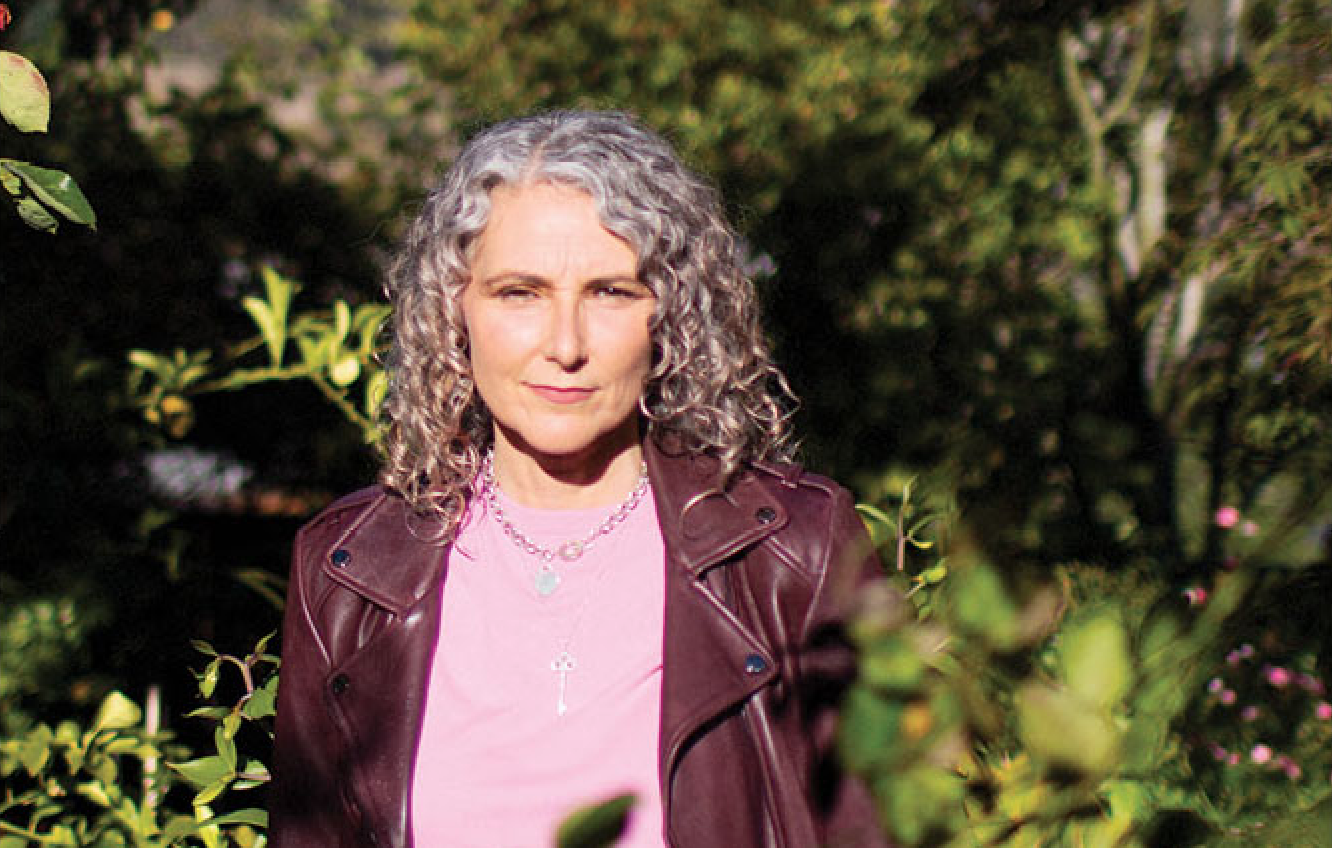
According to a recent report from UC San Diego, there is a phenomenon of women’s health and pain often being ignored or misdiagnosed, leading to a cultural and institutional bias toward women in general, compared to men. Coupled with the fact that the majority of doctors in nearly all speciality areas are male, it’s clear how this phenomenon gets compounded.
The answer may well lie in more women entering the medicine field, but it is also women in other areas of leadership advocating for women’s health beyond a “niche” area to change the status quo. One of the women doing exactly this is Linda Greub – cofounder of Avestria Ventures which focuses on funding all areas of women’s health and women-led life science ventures. Innovation and funding are two key areas that are enabling a huge shift in the way women’s health is tackled, as evidenced by the “femtech” movement.
Over the last 30+ years, Linda has invested in public and private life science companies as an institutional investor, a corporate M&A executive, a hedge fund analyst, and a private venture investor. Her areas of expertise include finance, operations, and mergers and acquisitions as well as diagnostics, genomics, healthcare services, and life science tools.
Starting in 2010, Linda and two of her Harvard Business School classmates started investing their own money in female-led companies, including nVision Medical: a health startup pioneering a novel way to detect ovarian cancer early. Since male venture capitalists often seemed uncomfortable or dismissive about the potential for this device, the company’s early investors were all women. nVision Medical was sold to Boston Scientific for up to $275 million in 2018.
After seeing the success of nVision and the lack of dollars and attention being paid towards women’s health startups, especially those run by women, Linda co-founded Avestria Ventures, in 2019 to invest in early-stage women’s health and female-led life science ventures. These two historically underinvested sectors represent a >$60B market opportunity.
Across its two Funds, Avestria has invested in 18 companies: 89% were founded by women and 61% focus specifically on women’s health. Linda is involved with the Board of eight of those companies and has helped countless others with operations, networking, and strategy. In 2021, two Avestria Fund I portfolio companies saw acquisitions: Alydia Health by Organon for up to $240M by Organon (NYSE: OGN) and Uqora by Pharmavite for an undisclosed amount.
Clearly this is a massive market, and with leaders like Linda helping to usher in new ideas and companies that will elevate women’s health, it is worth taking note of what is happening, especially in light of the regression we are seeing in reproductive health in the United States.
We wanted to get a sense of how Avestria is leading the way, so we spoke to Linda about why focusing on women’s health is important, and some of the exciting startups she is currently supporting.

Can you tell us where your interest in funding women’s health began?
I’ve been involved with healthcare and life-science companies for a large part of my career. My “aha!” moment, though – the one that eventually led to Avestria and funding women’s health – came after two of my Harvard Business School classmates and I formed LMN Ventures in 2010. While we were investing our own capital through LMN, we came across nVision Medical.
Founded and run by Surbhi Sana, this startup had developed a less invasive and low-cost medical device for early detection of ovarian cancer, before the cancer metastasized, and the fatality rate increased drastically. However, nVision’s early investors were all women; Surbhi noticed that many male venture capitalists became uncomfortable when she used the word “vagina” or brought out anatomy diagrams. Some even told her “Oh. This is a women’s issue.”
After hearing about Surbhi’s fundraising experiences, my LMN colleague, Corinne Nevinny, and I realized that the majority of male investors just didn’t understand the need for Surbhi’s innovation – or, really, for most innovations in women’s health. Surbhi is a woman of color leading a women’s health company which was also a disadvantage to her when it came to fundraising since the investment world is male-dominated.
Surbhi did end up raising the necessary funds, and in 2018, nVision was sold to Boston Scientific for up to $275 million dollars. A year later, in 2019, Corinne Nevinny and I founded Avestria Ventures to invest in early-stage women’s health and female-led life science ventures.
How did you initially get into the Venture Capital world, and what did you originally set out to fund?
At LMN, my business school-classmates-turned-investment-colleagues targeted female-founded businesses, specifically in the clean/green and health/wellness sectors.
But I had experience in the venture capital world even before then. I have not only been a venture capitalist investing funds in healthcare/life science companies but also a part of life science companies that were venture-backed, such as VitaPath Genetics, Singulex, Raindance Technologies (sold to Bio-Rad), and Linkage Biosciences (sold to Thermo Fisher).
You founded Avestria Ventures in 2019 to focus on female-founded and female led startups that center women’s health. Can you tell us about some of the companies you have funded so far?
So far, across two funds, Avestria has funded 18 companies: 11 have been in women’s health and 7 have been female-founded healthcare or life science companies.
Curio, Mae, and Raydiant Oximetry are currently addressing maternal health: Curio aims to diagnose and treat postpartum depression. Mae is providing care, resources, and tools to moms, starting with Black mothers, to help them have a healthy pregnancy and postpartum period. Raydiant is developing a novel fetal oximeter to help prevent medically-unnecessary C-sections and keep moms and babies safe during childbirth.
Companies like Midi Health and ViuHealth are addressing historically underserved populations. Midi is a care platform for midlife women, such as those who are entering menopause, and ViuHealth is for individuals, especially people of color, with autoimmune disease. (About 80% of patients with autoimmune diseases are women.)
AOA Dx., Antiva Biosciences, and ENB Therapeutics are addressing cancer, albeit in different ways. AOA is pursuing novel biomarkers to help detect and diagnose ovarian cancer early. Antiva is developing a topical therapeutic to treat lesions, caused by HPV, that can lead to cervical cancer. ENB Therapeutics is developing a small molecule therapeutic that can work with current market solutions to help treat otherwise drug-resistance cancers.
We also have companies that are addressing excessive sweating, overactive bladder and urinary incontinence, and vaginal dryness, are developing rapid, point-of-care diagnostic platforms or sample collection kits and RNA analysis tools, are delivering genetic counseling and care, and are helping with ongoing physician education.
Plus, two of the companies that were in our Fund I portfolio, were acquired in 2021: Alydia by Organon for up to $240M and Uqora by Pharmavite for an undisclosed amount.
(If you want to hear more about our portfolio companies – including those listed or not listed here – you can visit our website www.avestria.vc. or our blog https://avestriavc.medium.com/)

How does the market in general view women’s health today? Is it still considered “niche”?
Yes – and no. We have a lot of potential investors – most of whom are male – who tell us that women’s health, even though it affects half the population, is still a niche market. At the same time, though, we feel like there are more and more voices that amplify the need to invest in women’s health and show both the financial and social benefits of investing in it.
Obviously, one layer of that change comes from the investors and strategic partners in women’s health: from venture capitalists to the big, name-brand companies pursuing innovations in women’s health, like Boston Scientific, Edwards Lifesciences, Hologic, Johnson & Johnson, and Organon. Data from McKinsey shows an increase in the amount of funding going to FemTech companies and the number of FemTech companies that are founded in the first place. In other words, that data seems to show that entrepreneurs and investors, startups and big companies alike are understanding the need for investment and innovation in this market.
But there are other levels too: The overturning of Roe v. Wade obviously brought women’s reproductive health and rights back into the center of the political conversations. Even before then, though, in 2021, the White House announced the first-ever federal Maternal Health Day of Action to bring awareness to the fact that the U.S has one of the worst maternal mortality rates in the developed world and to announce the single-largest investment to combat that trend.
Meanwhile, The New York Times, just this year, published stories about breastfeeding, the clitoris, endometriosis, and menopause – all women’s health issues. Even Buzzfeed, over the past few years, has done listicles of the times that doctors ignored or dismissed a woman’s pain.
In short, we’re seeing dialogue not only from investors but also from the federal government level all the way to pop culture to help circulate these ideas, show the need for change, and dispel the myth that women’s health is a niche.
When it comes to women’s health generally, there has been growing interest paid to the way women’s pain is often ignored, women’s healthcare issues under-treated, and the disparities that exist in insurance policies, among others. Why are there so many systemic problems like this, and what will it take to change?
Unfortunately, a male bias still exists in healthcare. For years, women have been seen as everything from small men with different reproductive organs to deformed men, and standards and reference models still use a young, white, able-bodied 155-lb male as the norm.
Only in 1993 -30 years ago! – were women of child-bearing age allowed in clinical trials and only in 2016, did the NIH mandate that NIH-funded research must include female cells and tissue and sex-based data must be collected. Even now, though, clinical trials remain male-dominated.
The result is that society has seen and studied and understood healthcare through a men’s lens. Any differences in the health and healthcare of women – as well as elderly populations and minorities – have been considered deviations from the norm rather than the result of fundamental biological differences.
One example is cardiovascular disease, which causes one in every three deaths for women. But women’s heart attack symptoms are different from men’s; they’re not as likely as men are to follow the clutch-your-chest-in-pain trope that we tend to see, and, thus, understand. Women are more likely to have symptoms such as back pain, nausea, and stomach pain – symptoms that can be easily dismissed or misunderstood as anxiety, PMS, or menopause. Due to this male bias, women are 50% more likely to receive the wrong diagnosis following a heart attack and 50% more likely to die the year after the heart attack than men are.
One way to overcome that bias is through education. In a study done in 2015, 70% of post-graduate physician trainees indicated that concepts of gender medicine – or the effects of sex in healthcare – are never or only sometimes discussed or presented in their training program. For another example, women spent more than a third of their lives in perimenopause, menopause, and post-menopause collectively – but menopause training might be “covered in an hour in medical school”.
The more people who learn about and understand women’s unique health differences, the more they might be willing to ask questions, conduct research, find answers – and improve women’s health and the way that women are treated in healthcare as a result.
What are the kinds of companies that pitch to you, and what kinds of companies do you look for to invest in?
The companies that pitch to us tend to be early-stage. They’re pre-revenue, they might have just started or are thinking about starting clinical trials, they have a regulatory plan but have not received FDA approval, and they’re raising a Seed or an A round. Some of the companies that we see are even raising their first institutional capital.
Avestria is looking for investments that are female-led life science/healthcare companies and/or companies that are focused on a health issue that affects women differently, disproportionately, or exclusively. Beyond that initial criteria, we’re looking for companies with solutions that
- address an unmet need
- have evidence of improved outcomes
- can change clinical practice or patient behavior
- can keep costs neutral or reduce costs
- have relatively low capital requirements.
We also are looking for companies that have experienced management teams, scalable solutions, a sustainable competitive advantage and reasonable and justifiable valuations.
Startups that aren’t a good fit for us are companies that are focused on making only incremental improvements to existing healthcare solutions and/or companies that, when they pitch us, fail to articulate clearly how exactly their product or service will fill an unmet need.
What are the biggest health topics you are seeing more innovation in right now?
The biggest – and best, in our opinion – trend that we’ve seen is actually that “trends” are no longer driving the market. We have come across companies in fields like reproductive health and digital health companies that seem to be jumping into political – or simply new or buzzword-y – sectors. But overall, in the startups that we’ve come across, it’s been refreshing to talk to teams that value the early-stage fundamentals of building a long-term, sustainable business: that demonstrate the time and effort that is needed to develop evidence, craft a thoughtful, go-to-market strategy, and understand their customer base. That attention to a business’ foundation pays off.
We’re also continuing to see depth and breadth of experienced management teams in the startups that pitch Avestria. We truly believe that experience matters, and we’ve seen that ourselves; experienced leaders who constantly lead their companies through challenges successfully, whether through a global pandemic or a tough fundraising environment.
In terms of women’s health specifically, there are countless open opportunities for innovation since women’s health has been overlooked, underfunded, and under-researched for years. Some of those major opportunities, we believe, include:
Cardiovascular Health: Heart disease is the leading cause of death for women but only 38% of participants in cardiovascular clinical trials are women.
Endometriosis: Endometriosis is the growth of endometrial tissue outside the uterus. Although it affects about 10% (190 million) girls and women of reproductive age worldwide, and can have direct and indirect costs of almost $21,000 per person per year, it still takes seven years on average to diagnose, and there is currently no cure.
Osteoporosis: Osteoporosis is four times more common in women than men. Because women have smaller, thinner, and less dense bones than men, they are at a higher risk of developing osteoporosis than men, especially after they go through menopause.
How do you and Avestria hope to change the status quo of so little female-founded and lead companies being funded, especially women of color?
We hope to enact change on three levels: women in venture capital, women in entrepreneurship, and women’s health.
Women have proved to be a good investment. Venture capitalists who increased their proportion of female partner hires by 10% saw, on average, a 1.5% improvement in annual fund returns and a nearly 10% increase in profitable exits.
Firms with at least one female partner are also 2x more likely to fund female founders and 3x more likely to fund companies with female CEOs than firms with all male partners are – and reap the benefits of investing in those founders.
Female-led startups specifically, have 35% higher ROIs and 63% higher valuations on average compared to all male-teams and generate $0.78revenue generated per dollar raised vs. $0.31for all-male teams – all with about 33% less capital compared to male-led businesses.
In fact, diversity, in general, is good for leadership teams: heterogeneous teams have shown better decision-making, better financial returns, faster exits, higher revenues per dollar raised, and more innovation than homogeneous teams.
But, since only 14.3% of decision-making partners at U.S V.C investment firms are women, the investment in underrepresented founders remains low as well: in 2021, female founders received only 2% of all venture capital funding, Black founders received only 1.2%, and Black female founders received under 0.35%.
By embodying and supporting these various layers – women in venture capital, women in entrepreneurship, and women’s health – Avestria hopes to show to others the value of having women as investors, as decision-makers, as founders, as patients – and as a huge overlooked market.
The world of Femtech is becoming a major area of interest for women’s health, especially in the wake of Roe v Wade being overturned. How do you see innovation and technology becoming a way forward for women’s health?
Innovation and technology, we think, will be prominent in women’s health going forward. Obviously, even medical devices and services need some sort of technology – hardware or software – behind them. But we’re also seeing a rise in digital health companies: companies that are using apps/platforms, sensors, and software to help deliver healthcare.
Digital health is accessible and convenient: instead of finding the time, funds, and energy to go to a doctor’s office or health clinic, to wait there, and to share their health story again and again, individuals – not just women! – can access care at home. These tools are personalized and precise so that patients can get a tailored solution based on their bodies, their habits, their idiosyncrasies, etc.
We’ve seen the benefits of digital health in some of our own portfolio companies such as Curio, Genome Medical, Mae, Midi, and ViuHealth. These companies and others like them can help empower individuals to educate themselves, receive a diagnosis or treatment or resources, connect with others, and feel like they have control over their own health. And, going back to the overturning of Roe v. Wade, we’ve seen women turning to digital tools and solutions to keep themselves as healthy and happy as possible.
What are Avestria’s biggest goals in 5 and 10 years from now?
We have several goals! Our biggest ones include fundraising: the more money that we raise, the more we can invest in innovative companies. Within the next five years, we also hope to see many of our portfolio companies – especially the ones that are currently running clinical trials – receive regulatory approval and commercialize their products. In 10 years – if not fewer than that! – we want to see those companies get acquired, go through a merger, or have another exit event. And, of course, we want to continue to find and to support companies that follow our investment thesis of being female-led life science/healthcare companies and/or improving women’s health.
For any startups looking for funding, what do they need to come prepared with, and how do they pitch you?
To get in touch with us initially, startups just have to visit this page of our website https://www.avestria.vc/entrepreneurs and fill out the form there. If we’re interested in hearing more about your company and think it might be a good fit for Avestria, we’ll reach out with next steps.
If we want to hear your pitch, we want it to include what you’re doing, why it’s needed and/or different from anything else on the market, what your expected revenues are, what your regulatory or reimbursement path is (if applicable), and how you’re thinking about scaling and commercializing.
We also like to hear about challenges you might face. You don’t need to have an exact answer, but we do like to hear what you anticipate and what you might do to respond. That way, we know that you’re thinking ahead and can see whether or how we can be helpful to you and whether or not we would be the best investment partner for you too.

















